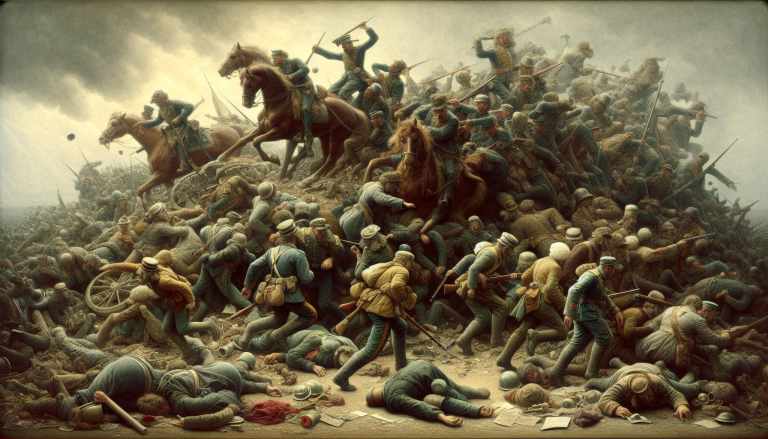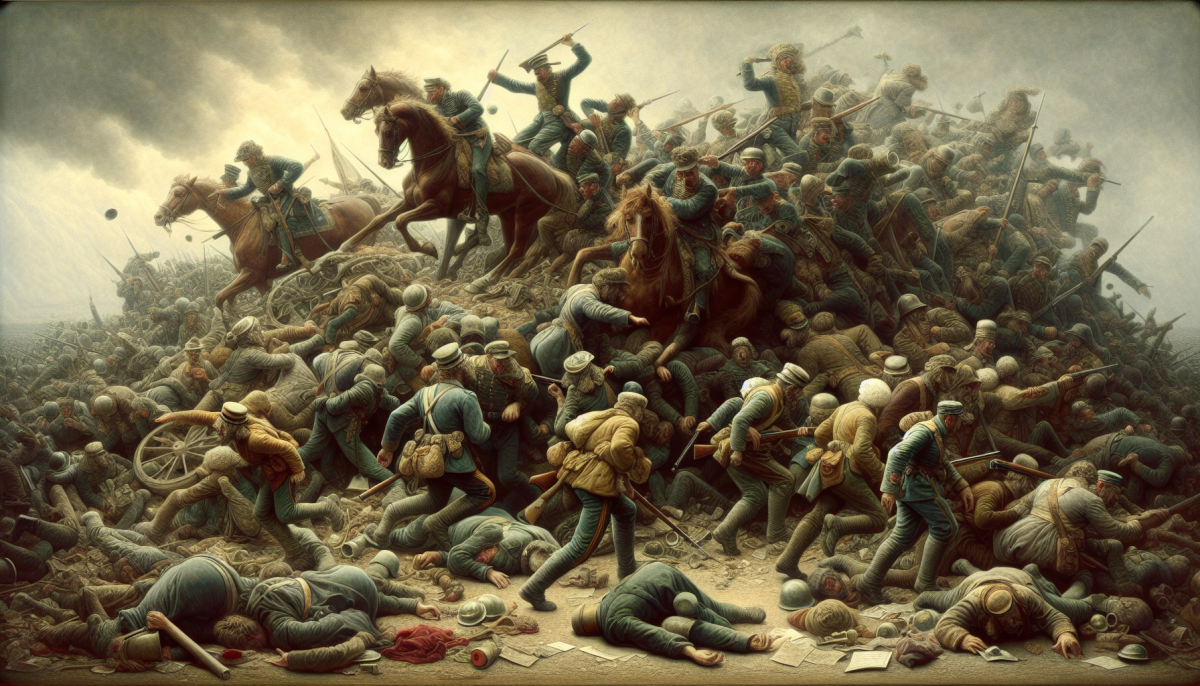The Crimean War: When Beating a Dead Horse Became an Art Form

In the annals of military history, few conflicts have been as farcical and futile as the Crimean War. This clash between the Russian Empire and an alliance of the British, French, and Ottoman Empire was a veritable clown car of blunders, with each side seemingly trying to outdo the other in sheer incompetence. And at the heart of this epic fail was the infamous “Charge of the Light Brigade,” a military maneuver so mind-bogglingly stupid that it became the poster child for the phrase “beating a dead horse.”
The year was 1854, and the British and French forces had laid siege to the Russian-held port of Sevastopol in the Crimean Peninsula. The battle lines had settled into a stalemate, with both sides trading blows in a series of increasingly bewildering attacks and counterattacks. But on October 25th, the British commander, Lord Raglan, decided to shake things up a bit.
Raglan, a man with the strategic acumen of a drunken lemming, received a garbled message from one of his subordinates, instructing him to launch a cavalry charge against the Russian forces. Somehow, Raglan interpreted this as a command to send his Light Brigade, a highly mobile and lightly armored cavalry unit, on a frontal assault against the heavily fortified Russian artillery.
The Charge of the Lemmings
What happened next was a spectacle of such epic proportions that it would make the Three Stooges look like military geniuses. The 673 men of the Light Brigade, led by the hapless Lord Cardigan, charged headlong into a withering hail of Russian cannon fire, their sabers and lances utterly useless against the enemy’s superior firepower.
As the dust settled, the survivors of the charge staggered back, having suffered nearly 40% casualties. The Russians, no doubt trying to stifle their laughter, simply watched in bewilderment as the British continued to hurl their cavalry against the guns, over and over again.
“Ours is not to reason why, ours is but to do and die,” the poet Alfred, Lord Tennyson famously wrote, summing up the sheer futility of the Charge of the Light Brigade. And indeed, the men of the Light Brigade did die, in droves, all because their commanders had somehow managed to confuse “charge” with “commit ritual suicide.”
The Legacy of Futility
The Crimean War, as a whole, was a veritable smorgasbord of military blunders and political bungling. From the British army’s inability to provide its soldiers with adequate supplies and medical care, to the French commander’s decision to launch a diversionary attack that ended up being the main assault, the conflict was a textbook example of how not to wage war.
But the Charge of the Light Brigade remains the war’s crowning achievement in futility. It has become a byword for military incompetence, a cautionary tale of what happens when you let the inmates run the asylum. Generations of military historians have pored over the event, scratching their heads and wondering, “Wait, they really did that?”
And the phrase “beating a dead horse” has become forever linked to the Charge, a fitting metaphor for the endless, pointless attempts to analyze and understand the sheer absurdity of the whole affair. After all, when your military strategy involves repeatedly launching your cavalry into the maw of the enemy’s guns, you’ve pretty much reached the point of diminishing returns.
In the end, the Crimean War and the Charge of the Light Brigade serve as a sobering reminder that even the mightiest of empires can be brought low by the sheer power of human stupidity. So the next time you find yourself caught in a futile endeavor, just remember: you could be doing worse. You could be charging straight into the guns of the Russian artillery.
